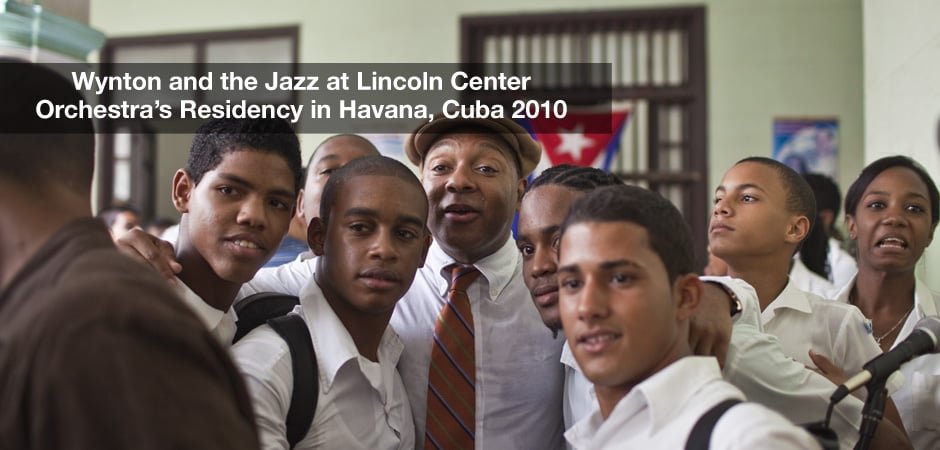
Image Credit: wyntonmarsalis.org
Last night 60 Minutes (a TV news program in the U.S.) had an excellent two-part presentation on Wynton Marsalis and his Jazz at Lincoln Center (JALC) Orchestra. The followed the band’s trips to London and Havana, where they engaged in cultural diplomacy of the highest order. What made the JALC trip to Havana so interesting to watch was how they interacted with Cubans. They did not make pronouncements about the state of U.S.-Cuban relations and they clearly went far out of their way to venture beyond the confines of the concert hall to participate in jam sessions with Cuban musicians, visit music schools, hold master classes and a concert and reception at the U.S. interest section. In the spirit of jazz, and as cultural diplomacy should happen, Marsalis and his band traveled around with little or no security, meeting people in informal settings and sharing stages and performances with Cuban musicians as true partners (not merely as passive audience members or de facto students to be taught by the visiting Americans). All the participants – Cuban and American – are both playing and listening to each other as equals. Listening is as important in diplomacy as it is in music and in the 60 Minutes segments Marsalis and his band excel at both. From Marsalis’ interview with Morley Safer:
The full episode is hereand here.
Marsalis’ cultural diplomacy follows a long line of jazz ambassadors that included Louis Armstrong, Dizzy Gillespie, Miles Davis and Dave Brubeck and many others from the pantheon of jazz history. More recent musical ambassadors from the U.S. have not been limited to jazz and include hip hop, which Marc Lynch notes is a natural extension of this effort:
Jazz at Lincoln Center administers today’s version of the Jazz Ambassadors, The Rhythm Road: American Music Abroad. Supported by the State Department’s Bureau of Educational and Cultural Affairs, JALC programs overseas tours by American bands in genres including jazz, blues, bluegrass, Cajun, country, gospel, hip hop/urban, and zydeco.